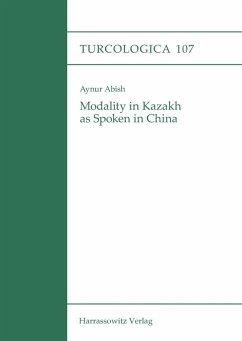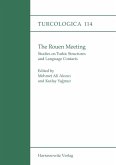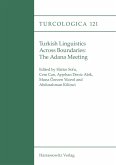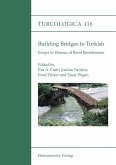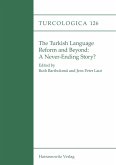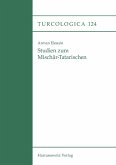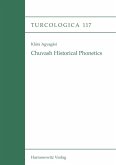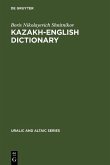This is a comprehensive study on modality in one of the largest Turkic languages, Kazakh, as it is spoken in China. Kazakh is the official language of the Republic of Kazakhstan and is furthermore spoken by about one and a half million people in China in the Xinjiang Uyghur Autonomous Region and in Aksai Kazakh Autonomous County in the Gansu Province. The method employed is empirical, i.e. data-oriented. Modal expressions in Kazakh are analyzed in a theoretical framework essentially based on the works of Lars Johanson in which semantic notions of modality are defined from a functional and typological perspective. The modal categories volition, deontic and epistemic evaluation express attitudes towards the propositional content and are conveyed in Kazakh by grammaticalized moods, particles and lexical devices, treated in detail in this book. Plenty of examples of their different usages are provided with interlinear annotation. The Kazakh expressions are compared with corresponding ones used in other Turkic languages. Contact influences of Uyghur and Chinese are also dealt with. The Appendix contains nine texts recorded by Aynur Abish in 2010-2012, mostly in the northern regions of Xinjiang.
Dieser Download kann aus rechtlichen Gründen nur mit Rechnungsadresse in A, B, BG, CY, CZ, D, DK, EW, E, FIN, F, GR, HR, H, IRL, I, LT, L, LR, M, NL, PL, P, R, S, SLO, SK ausgeliefert werden.

